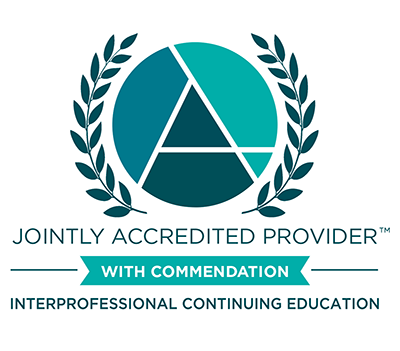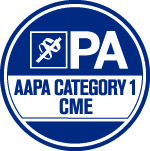UW Health Stroke Continuing Education Series 2024
Join us virtually throughout National Stroke Awareness Month for learning and partnership as UW Health hosts its first annual Stroke Continuing Education Series. Led by distinguished experts in the field, these immersive sessions will foster a collaborative space where clinicians can actively engage with faculty. Don't miss the opportunity to connect, learn, and contribute to the future of cerebrovascular care.
Sessions will be held virtually. Sessions will be held on Tuesday evenings from 6pm - 7pm (CDT) beginning April 30-May 28.
Intended Audience
This activity is designed for nurses, physicians (including EM, hospitalists, primary care, and neurology), neurosurgeons and stroke coordinators.
Elements of Competence
This activity is designed to change learner competence (skills/strategies). This activity will address the ACGME/Nursing competencies of medical knowledge and professionalism; NAM/Nursing competencies of providing patient/person-centered care, employing evidenced-based practice, and population health; and Interprofessional Education Collaborative Competencies of values/ethics, roles/responsibilities, interprofessional communication, and teams and teamwork. This activity will also address the DEI competencies of engaging in self-reflection and addressing health disparities.
Learning Objectives
As a result of participating in this educational series, members of the healthcare team will be able to...
- Describe signs and symptoms of stroke.
- Identify different types of neurological emergencies
- Summarize current evidence-based practices for stroke treatment.
- Discuss the effects of healthcare disparities and bias on stroke patient care
Carotid Interventions
Tuesday, April 30 | 6:00 pm - 7:00 pm | WebEx
Azam Ahmed, MD, FAANS, FACS Associate Professor of Neurological Surgery, Radiology, and General Surgery, UW School of Medicine and Public Health
Thomas Russell, MD, Fellow Department of Neurological Surgery, UW School of Medicine and Public Health
Endovascular Therapy for Acute Ischemic Stroke
Tuesday, May 7 | 6:00 pm - 7:00 pm | WebEx
David Niemann, MD, Associate Professor of Neurological Surgery, UW School of Medicine and Public Health
Jacob McGrath, PA-C – Neurosurgery (Inpatient Hospitalist), UW Health
Care of the Patient with Minor Stroke or TIA (Transient Ischemic Attack)
Tuesday, May 14 | 6:00 pm - 7:00 pm | WebEx
Bolanle Famakin, MD, Assistant Professor of Neurology, UW School of Medicine and Public Health
Disparities in Stroke Care
Tuesday, May 21 | 6:00 pm - 7:00 pm | WebEx
Eric Adelman, MD, Associate Professor of Neurology, UW School of Medicine and Public Health
Neurologic Emergencies
Tuesday, May 28 | 6:00 pm - 7:00 pm | WebEx
Sepideh Chagharvand, MD, Assistant Professor of Neurology, UW School of Medicine and Public Health
Planners
Melanie McCauley, MSN, Stroke Program Manager, UW Health
Cassie Nankee, MD, Vascular Neurologist, UW Dept. of Neurology
Joshua Ernst, BSN, Telestroke Clinical Program Coordinator, UW Health
Molly Gerhardt, BSN, Stroke Program Coordinator, UW Health
Jacob McGrath, PA-C, Neurosurgery (Inpatient Hospitalist), UW Health
Tess Lee, NP, Neurology (Inpatient Hospitalist), UW Health
Faculty
Eric Adelman, MD, Associate Professor of Neurology, UW School of Medicine and Public Health
Azam Ahmed, MD, FAANS, FACS Associate Professor of Neurological Surgery, Radiology, and General Surgery, UW School of Medicine and Public Health
Sepideh Chagharvand, MD, Assistant Professor of Neurology, UW School of Medicine and Public Health
Bolanle Famakin, MD, Assistant Professor of Neurology, UW School of Medicine and Public Health
Jacob McGrath, PA-C – Neurosurgery (Inpatient Hospitalist), UW Health
David Niemann, MD, Associate Professor of Neurological Surgery, UW School of Medicine and Public Health
POLICY ON DISCLOSURE
It is the policy of the University of Wisconsin–Madison Interprofessional Continuing Education Partnership (ICEP) to identify, mitigate and disclose all relevant financial relationships with ineligible companies* held by the speakers/presenters, authors, planners, and other persons who may influence content of this accredited continuing education (CE). In addition, speakers, presenters and authors must disclose any planned discussion of unlabeled/unapproved uses of drugs or devices during their presentation.
For this accredited continuing education activity all relevant financial relationships have been mitigated and detailed disclosures are listed below.
| Role | Financial Relationship Disclosures | Discussion of Unlabeled/Unapproved uses of drugs/devices in presentation? |
*Ineligible companies are those whose primary business is producing, marketing, selling, re-selling, or distributing healthcare products used by or on, patients. The ACCME does not consider providers of clinical services directly to patients to be ineligible companies.
Accreditation Statement
 | In support of improving patient care, the University of Wisconsin–Madison ICEP is jointly accredited by the Accreditation Council for Continuing Medical Education (ACCME), the Accreditation Council for Pharmacy Education (ACPE), and the American Nurses Credentialing Center (ANCC) to provide continuing education for the healthcare team. |
Credit Designation StatementsStatements below are for each session American Medical Association (AMA) The University of Wisconsin–Madison ICEP designates this hybrid live activity for a maximum of 1.0 AMA PRA Category 1 Credits™. Physicians should claim only the credit commensurate with the extent of their participation in the activity. American Nurses Credentialing Center (ANCC) The University of Wisconsin–Madison ICEP designates this live activity for a maximum of 1.0 ANCC contact hours. | |
 | American Academy of Physician Assistants (AAPA) The University of Wisconsin–Madison ICEP has been authorized by the American Academy of PAs (AAPA) to award AAPA Category 1 CME credit for activities planned in accordance with AAPA CME Criteria. This activity is designated for 1.0 AAPA Category 1 CME credits. PAs should only claim credit commensurate with the extent of their participation. |
Continuing Education Units The University of Wisconsin–Madison ICEP, as a member of the University Professional & Continuing Education Association (UPCEA), authorizes this program for 0.1 continuing education units (CEUs) or 1.0 hours. | |

 Facebook
Facebook X
X LinkedIn
LinkedIn Forward
Forward